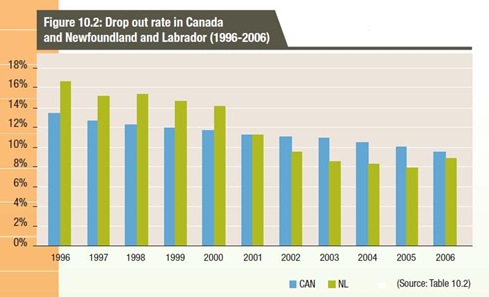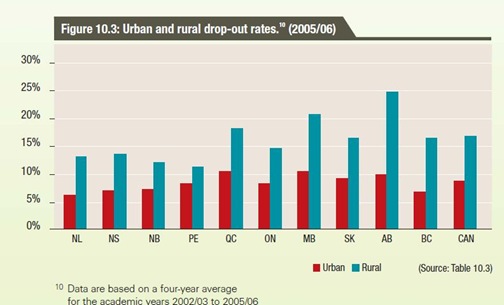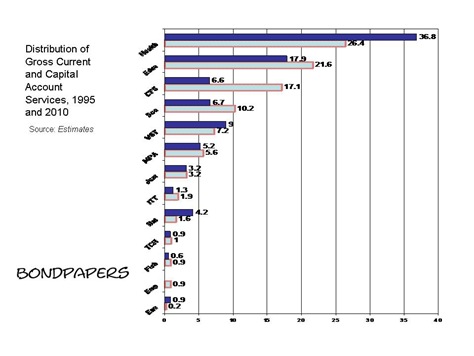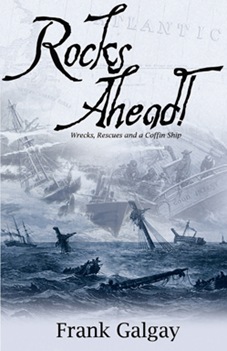Newfoundlanders and Labradorians can be forgiven this week if they thought they’d entered the savage world of American politics complete with its intense and highly orchestrated personal attacks.
While the 2011 provincial election campaign has been underway since last spring, the provincial Conservatives went negative this week with a pre-emptive attack on the Liberal party. The pretext for the attack was the opposition office’s new communications director, Craig Westcott.
Conservative leader Danny Williams was characteristically blunt in justifying both the attack itself and the violation of the province’s privacy laws by the release of an e-mail Westcott wrote to the Premier’s office in February 2009.
I did feel it was important that the people of the province know who they’re dealing with and what they’re dealing with when this man is now an integral part of the official opposition in this province.
The task of leading the attack went to Kevin O’Brien, recently promoted from a low-level portfolio to the slightly more demanding job of municipal affairs. O’Brien noted the idea as well of letting people know what - supposedly - they could expect from the Liberals:
It's sad really to see the Opposition take that path because what I see is a fellow that can't even contain himself with regard to expressing that hatred."
These statements stand out because they characterise something that had not occurred. Both Williams and O’Brien drew attention to what they considered Westcott’s personal “hatred” for the Premier.
Westcott has been characteristically blunt in his criticism of Williams, but his comments have been typically not as personal as Williams presents them. And sure, Westcott made plain - before he started the job – that he was concerned about Williams’ impact on politics and the potential the Williams’ Conservatives could win all 48 seats in the provincial legislature. But at the point O’Brien mentioned the e-mail, the opposition itself hadn’t gone anywhere near negative.
Interestingly, Westcott described Williams accurately in 2007:
it's impossible to avoid being negative about a leader who is so negative himself, especially about his critics and some of the people who try to do business in this province.
And Williams and his crowd took great offense at anything and everything Westcott said. For his part, Westcott released a raft of e-mails with Williams’ communications director at a time when Westcott published a local newspaper and couldn’t get an interview with Williams. Westcott ran for the federal Conservatives in 2008, largely as a personal gesture in reaction to Williams’ anti-Harper crusade. One of the consequences is that CBC stopped using him as a commentator after the election.
That isn’t just background for the most recent shots in an ongoing personal feud, nor does it suggest that both sides are equally guilty of anything. Westcott started his new job on Monday morning. On Wednesday, the Conservatives launched the assault. Until then, there was nothing other than the known animosity between Westcott and Williams. The point to note is that the Conservatives characterised what Westcott and the Liberals would do in the future.
But that prediction – and all the negative implications – are entirely a fiction created by Williams’ Conservatives.
Going negative isn’t something new for Williams. He likes the ploy and has used it on everyone from Stephen Harper to a previously unknown lawyer named Mark Griffin. Around the same time Westcott sent the now infamous – and previously private – e-mail, Williams labelled Griffin a traitor. Williams also started a lengthy battle with the Globe and Mail over a column that speculated about Williams’ possible motives in expropriating assets from three private companies in central Newfoundland.
Nor is it the first time Williams has tried to put words into someone else’s mouth. in the most famous episode cabinet minister John Hickey sued then opposition leader Roger Grimes for defamation. The case quietly disappeared because Hickey sued Grimes not for what Grimes said but for what Williams attributed to Grimes.
The provincial Conservatives are a tough and effective political organization. They bring message discipline and zeal to the table. On top of that they have an army of enthusiastic sock puppets who will fill any Internet space and radio talk show with pre-programmed lines. Going nasty and negative is second nature to them.
The curious thing about the episode is that Williams could easily have waited until the first lump of mud came hurling his way.
But he didn’t.
He sent O’Brien out as his crap flinger, first.
Taking the first shot, going negative in this way, this early in a campaign would be a risky venture in any case in Newfoundland and Labrador. Most voters aren’t engaged in politics and the overwhelming majority aren’t thinking about the election yet. Local politics is anything but the highly competitive, ideologically-divided wasteland of the United States. People don’t like taking the battle-axe to the heads of their neighbours and friends.
Politics can be competitive, but heavily negative campaigning doesn’t bring any great benefits. Going negative early carries a risk of alienating people from the Conservatives and from politics generally. And it’s not like Williams has a surplus of voter support he can afford to tick off with negative campaigning. He won in 2003 and again in 2007 with about the same number of votes, about the same share of total eligible vote. That’s because Williams’ voters consist of a core of traditional Conservative supporters plus a group of voters who have voted for other parties, usually Liberal, in the past.
For someone with Williams’ reputation, however, there is the added danger that yet more relentless negativity will affect his own support. Voters may not be able to stomach a full year of his highly concentrated political bile on top of the seven years they’ve already witnessed. Even Conservatives have been known to revolt against Williams’ diktats. In 2008, Conservatives in St. John’s South-Mount Pearl voted heavily for the New Democratic Party, despite the fact that four prominent cabinet ministers campaigned for the Liberal. In other ridings, they just stayed home in response to Williams’ personal anti-Harper crusade.
There are signs that voters, generally, in some parts of the province are discontented if not slightly cranky. Williams’ Conservatives have already started trying to mollify concerns over some issues. Public money is flowing freely in announcements about spending for new outdoor basketball courts or cassettes for x-ray machines. A news conference heralding a new case of DVDs or a packet of screws can’t be far behind.
The provincial Conservatives have also telegraphed that they are worried about voter attitudes toward the party, generally. Maybe it wouldn’t take much to see the sort of rejection of the Conservatives that happened in the Straits and White Bay North spread to other districts along the northeast coast and other parts of central and western Newfoundland and into Labrador.
In a sense, going negative early suggests the Conservatives are particularly sensitive about any prospect that a resurgent Liberal Party might be able to capitalise on voter discontent. It reinforces the idea that Williams’ personal smear of Marystown mayor Sam Synyard had more to do with a fear of political rivals than anything else.
In the insider baseball world of political reporting in this province, this week’s drama about an e-mail and a communications director may looks like one thing to some people. But if you look more closely, another picture may appear.
No matter what, the next 12 months could bring some of the most interesting political developments in years.
- srbp -
Outside the Overpass Update: The Overpass is to Newfoundland and Labrador politics as the beltway is to American federal politics. In that light, consider this e-mail from the province’s other daily that puts the week’s game of insider baseball in perspective: “Get back to work”.
Going negative this early has its risks.








 In the interview, Penashue talks about some of the people who have walked with her, including busloads of school children brought out each day. She also talks about the food she enjoys and about the tent prepared for her by family members and other sin the community when she arrived at Gull Island.
In the interview, Penashue talks about some of the people who have walked with her, including busloads of school children brought out each day. She also talks about the food she enjoys and about the tent prepared for her by family members and other sin the community when she arrived at Gull Island.





